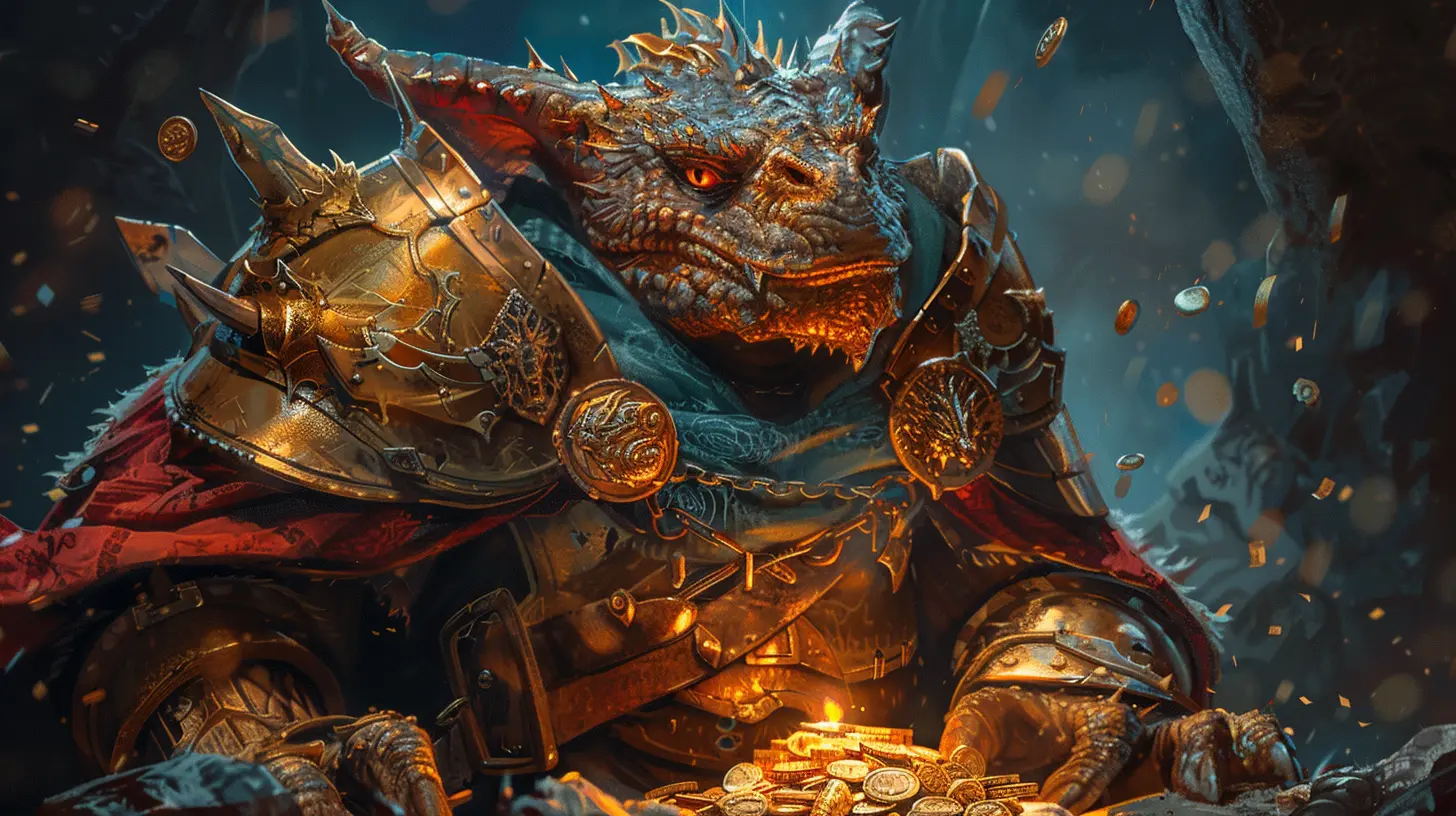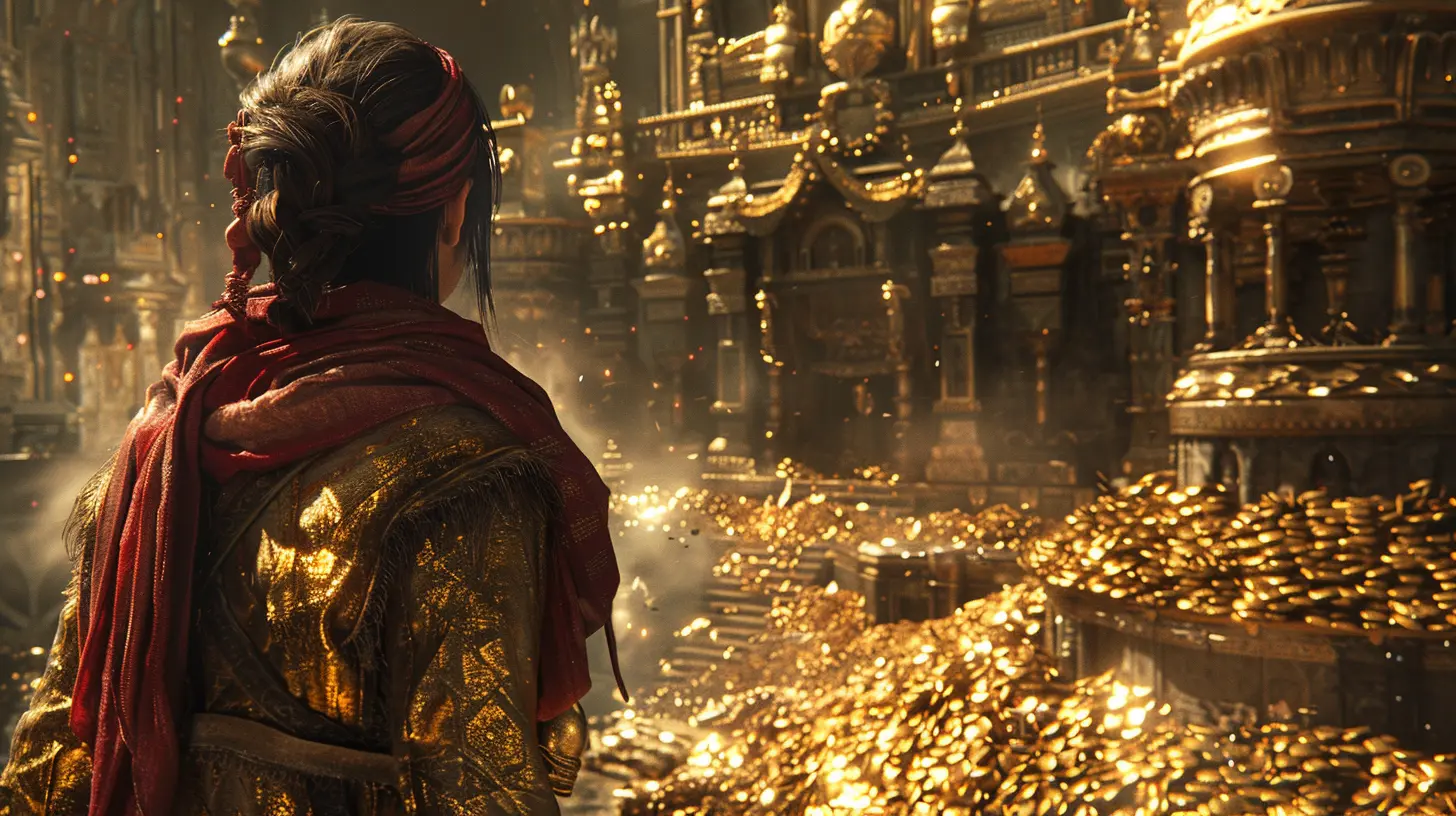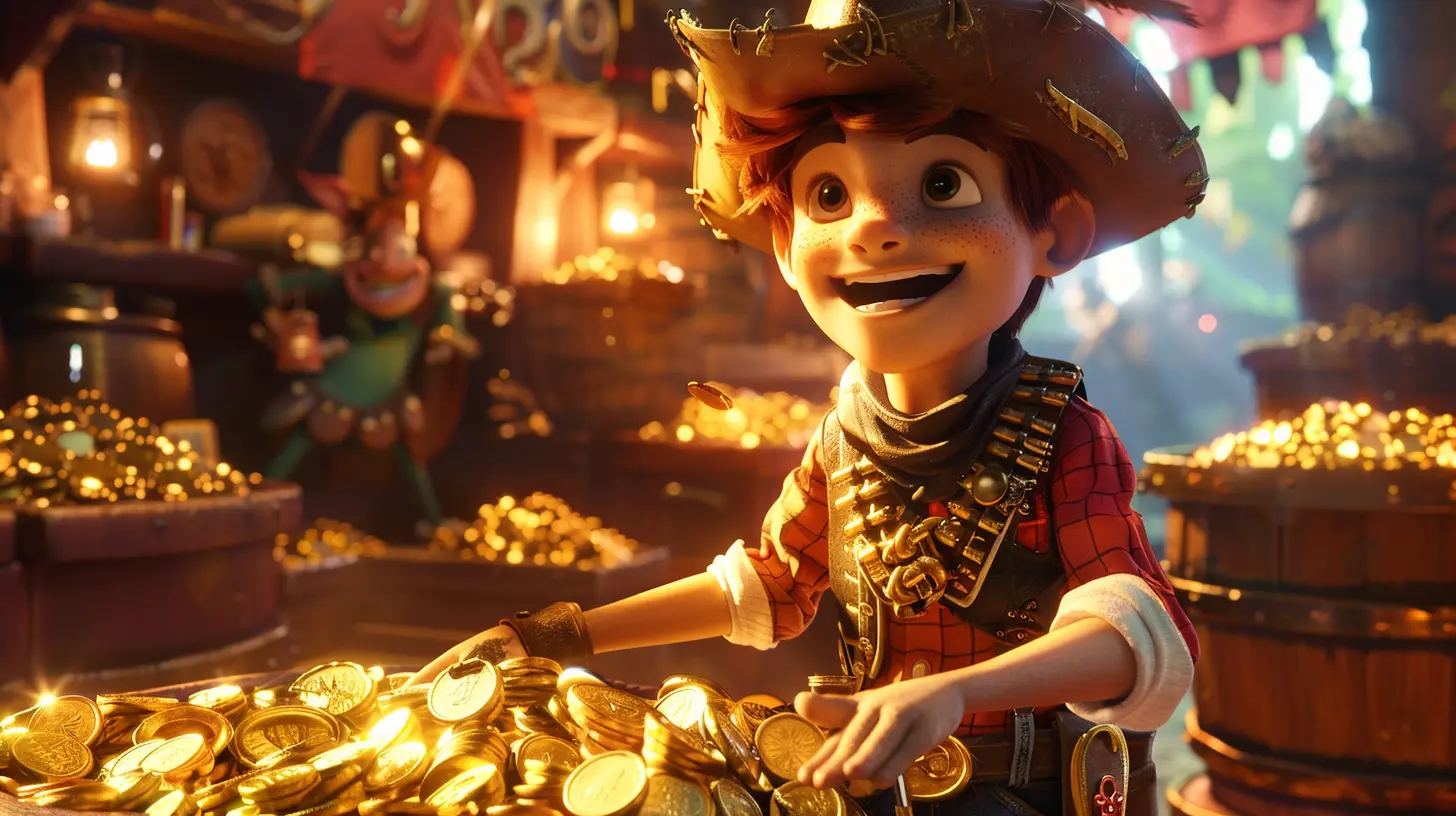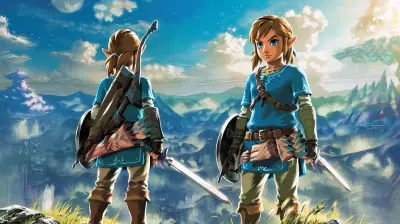Is the Golden Age of DLC Over? The Shift Toward Microtransactions
18 March 2025
Remember the good ol’ days when you’d finish a game, absolutely satisfied, and then the announcement for a DLC would pop up like an unexpected dessert? It was like ordering a pizza and the delivery guy showing up with a free side of garlic bread. Sweet, delicious content that expanded your favorite games for a reasonable price. But now, instead of DLC, we’ve got microtransactions. And let’s be honest—paying $2.99 for a digital hat or a shiny weapon skin isn’t exactly the same as a new 10-hour questline.
So, what happened? Has the era of meaty, satisfying DLC slipped into obscurity while microtransactions took over like that overly chatty coworker who hijacks every meeting? Let’s talk about it. 
The Glory Days of DLC
Ah, DLC (Downloadable Content), the crown jewel of post-launch gaming. Back when DLC first became a thing, it felt like a love letter from developers to their fans. You’d finish a game, and the developers were like, “Hey, we noticed you enjoyed slaying dragons—how about we give you a whole new castle to raid and more terrifying dragons to fight?” And you were all in.Think about iconic DLCs like The Elder Scrolls IV: Oblivion’s “Shivering Isles” or The Witcher 3’s “Blood and Wine.” Those were more than just add-ons; they were practically games within games. You didn’t mind shelling out $20 because these expansion packs didn’t just add new items—they added entire worlds, characters, and stories. It was like getting a sequel without waiting five years.
But as gaming evolved, something started to shift. DLC, like our collective attention span, got... shorter. DLC content started feeling more like bonus sprinkles on an already-finished sundae instead of a full second scoop. And then, lurking in the shadows, microtransactions tiptoed in.
Microtransactions: The New Boss in Town
Microtransactions are like that one friend who conveniently forgets their wallet every time you go out for coffee. They seem harmless at first—“Oh, it’s just $1.99, no big deal!”—but over time, they sneakily drain your bank account while delivering far less value than you expected.Let’s break it down. Microtransactions started showing up mostly in free-to-play games. Fair enough, right? You’re playing a game for free, and the devs need to make some cash. But then big-budget, $70 AAA titles started adding microtransactions, and suddenly, it felt less like a game and more like a Vegas casino. Only instead of poker chips, you’re spending real money on loot boxes for a 0.001% chance of unlocking that legendary skin.
And can we talk about Battle Passes for a second? It’s like paying for a gym membership but only getting access to the treadmill if you meet your weekly step goal. “Oh, you want this exclusive emote? Better grind for 30 hours or cough up another $10.” Like, come on. 
Why the Shift?
Okay, so why are we here, staring at the grave of glorious, story-rich DLC while microtransactions dance on its coffin? The short answer: Money.Game development is expensive—like, really expensive. We’re talking budgets that rival blockbuster movies. So instead of pouring resources into creating massive DLC expansions, publishers realized, “Hey, we can make way more money selling virtual coins, skins, and season passes piecemeal.” And guess what? It worked.
Games like Fortnite, Genshin Impact, and Apex Legends made microtransactions not just acceptable but lucrative. Why sell one $20 DLC when you can sell thousands of $5 skins to millions of players? It’s the equivalent of Starbucks charging you extra for oat milk; it doesn’t cost them much, but it adds up real quick. 
The Problem with Microtransactions
But here’s the rub—microtransactions often come at the expense of meaningful content. Remember when games gave you unlockable rewards based on skill or achievement? Now, it feels like every cool item is locked behind a paywall. Want that badass sword? Either pay up or spend 50 hours grinding, because apparently, your time is worth less than a cup of coffee.And it’s not just about money. Microtransactions have fundamentally changed the way games are designed. Instead of focusing on creating cohesive, immersive experiences, some developers prioritize player retention and monetization. They want you to keep logging in, keep grinding, and—most importantly—keep spending. It’s less about storytelling and more about ensuring you buy the next seasonal skin pack.
Are There Any Upsides?
Okay, I’ll admit, not all microtransactions are evil. Some games balance them pretty well. For example, League of Legends and CS:GO have been running on microtransactions for years without sticking their hands too far into your wallet. Plus, cosmetic-only purchases (where the microtransactions don’t affect gameplay) are at least a fair compromise.And some games manage to combine the best of both worlds. Titles like Destiny 2 or Final Fantasy XIV offer substantial content updates (some paid, some free) while also selling cosmetics on the side. It’s like having your cake and eating it too—except the frosting costs extra.
Can We Bring Back the DLC Era?
So, is there hope to bring back the golden age of DLC? Maybe. While microtransactions aren’t going anywhere anytime soon (because, let’s face it, they’re a cash cow), there’s still demand for high-quality DLC. Look at Cyberpunk 2077’s upcoming expansion, “Phantom Liberty,” or Monster Hunter: Rise’s “Sunbreak.” Players love meaningful content, and they’re willing to pay for it if it feels worth the price.The problem is convincing publishers to prioritize quality over short-term profits. And let’s be real—that’s like convincing your cat to stop knocking stuff off the table. It’s possible, but you’re gonna need some serious effort (or tuna).
The Bottom Line
So, is the golden age of DLC over? Yeah, kind of. Microtransactions have carved out a comfy spot in the gaming industry, and they’re not packing up anytime soon. But that doesn’t mean DLC is dead and gone—it’s just playing a smaller role these days.As players, the best thing we can do is vote with our wallets. Support games that deliver quality DLC and call out publishers when they get too greedy. If enough people say, “Hey, I’d rather spend $20 on a massive expansion than $2.99 on a pointless emote,” maybe—just maybe—the industry will listen.
Until then, let’s pour one out for the golden age of DLC. You were glorious while you lasted, buddy. Now, if you’ll excuse me, I’m off to not buy a $5 skin I’ll never use.
all images in this post were generated using AI tools
Category:
In Game PurchasesAuthor:

Madeleine McCaffrey
Discussion
rate this article
8 comments
Haze Barron
Is it just me, or does ‘microtransaction’ sound like a fancy term for ‘paying to unlock the fun’? Bring back DLC and my sanity!
April 4, 2025 at 5:06 AM

Madeleine McCaffrey
You're not alone—many share your sentiment. Microtransactions can feel like they detract from the experience, while DLC often provided a more complete gaming package. It's a debate worth having!
Amelia Middleton
Insightful article! Microtransactions certainly change the gaming landscape.
March 31, 2025 at 3:19 PM

Madeleine McCaffrey
Thank you! I'm glad you found it insightful. Microtransactions are indeed reshaping how we engage with games.
Candice McMillan
Ah, yes, the Golden Age of DLC—when we were showered with content for a fair price! Now, we can enjoy the thrill of paying for the same content... several times!
March 31, 2025 at 3:30 AM

Madeleine McCaffrey
Indeed, many feel that the shift to microtransactions has diluted the value of DLC, turning what used to be substantial content into fragmented purchases.
Mary Wagner
The article raises valid concerns about the decline of quality DLC in favor of microtransactions. While DLC offered substantial content and value, the shift to microtransactions often prioritizes profit over player experience. It’s a disappointing trend that risks alienating dedicated gamers who seek meaningful expansion rather than fragmented purchases.
March 28, 2025 at 5:43 PM

Madeleine McCaffrey
Thank you for your insights! I completely agree that the focus on microtransactions can detract from the value and depth that traditional DLC once provided, leaving dedicated gamers feeling unsatisfied.
Zorina Jones
The article astutely captures the decline of expansive DLC models in favor of microtransactions, which often prioritize short-term revenue over player satisfaction. While microtransactions offer ongoing funding for developers, they risk alienating gamers seeking deeper, narrative-rich experiences. This shift highlights a growing tension between monetization strategies and player engagement.
March 26, 2025 at 3:57 PM

Madeleine McCaffrey
Thank you for your insightful comment! You've captured the core tension perfectly. The shift toward microtransactions certainly raises important questions about player experience versus revenue strategies in today's gaming landscape.
Jessamine Beck
Great read! While the shift toward microtransactions is concerning, it also opens new avenues for developers to innovate. Let's embrace this change, advocate for fair practices, and support games that respect players’ investment.
March 26, 2025 at 5:29 AM

Madeleine McCaffrey
Thank you for your insightful comment! Embracing innovation while advocating for fair practices is crucial as the gaming landscape evolves.
Hugo Pacheco
Great article! It's fascinating to see how the gaming landscape is evolving. Microtransactions may be here to stay, but let's hope creativity and player satisfaction continue to shine through! 🎮✨
March 25, 2025 at 3:36 PM

Madeleine McCaffrey
Thank you! I completely agree—creativity and player satisfaction are essential as the landscape evolves. 🎮✨
Sorin Lawson
This article highlights a crucial shift in the gaming industry. While DLCs offered substantial content, microtransactions often prioritize profit over player experience. It raises concerns about game quality and player satisfaction. Balancing monetization with meaningful content is essential; otherwise, we risk alienating dedicated fans in search of value.
March 24, 2025 at 5:30 PM

Madeleine McCaffrey
Thank you for your insightful comment! Balancing monetization strategies with player satisfaction is indeed vital for the industry's future. Your points about the impact on game quality and fan loyalty are crucial as we navigate this shift.




